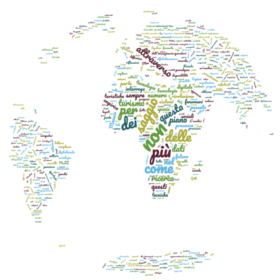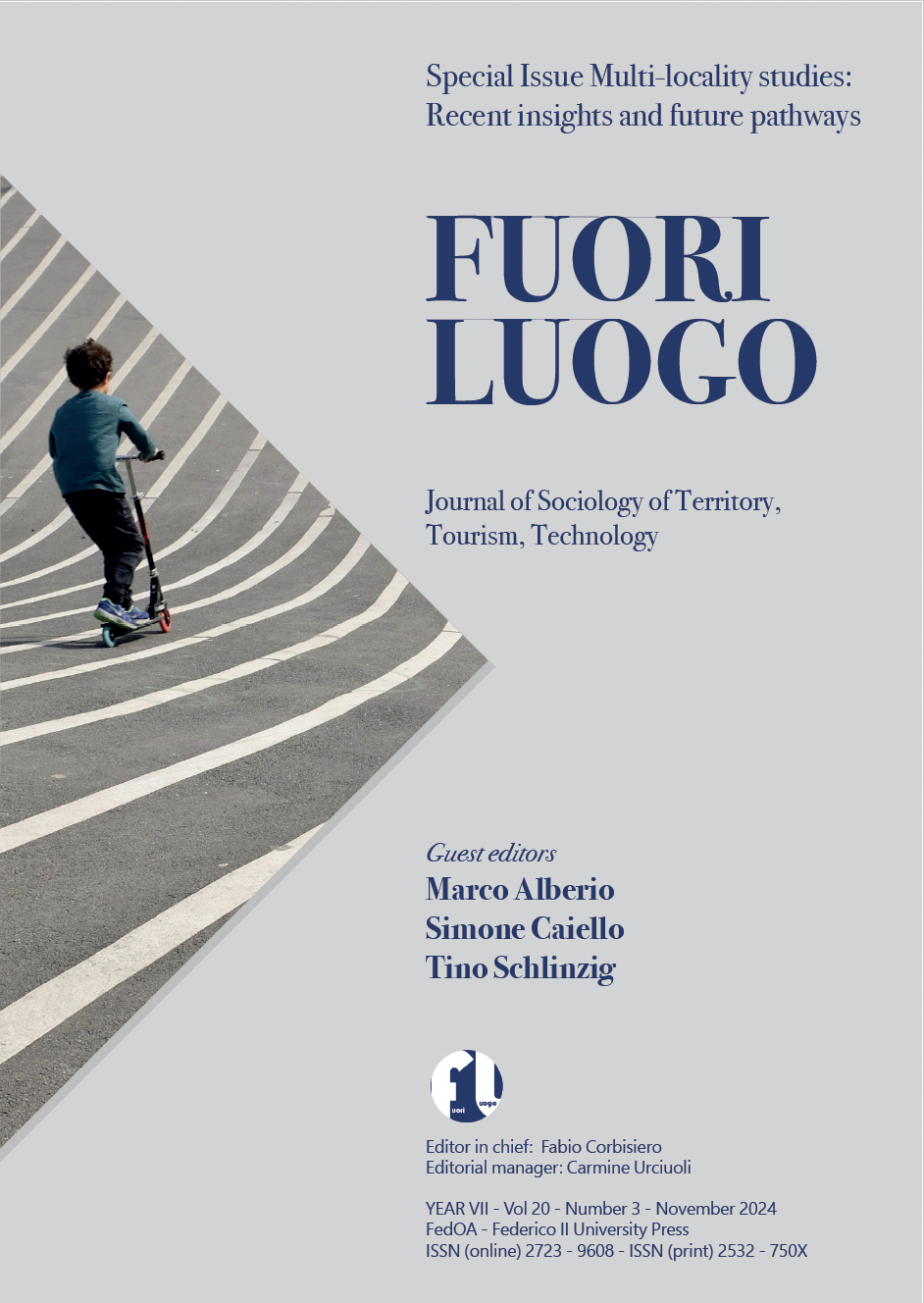Ultimo fascicolo
Fascicolo completo
Editorial
Articles
3T Readings
Fuori Luogo Interview
Fuori Luogo Section
Fuori Luogo. Rivista di Sociologia del Territorio, Turismo, Tecnologia.
 La Rivista “Fuori Luogo” – fondata nel 2016, accreditata da ANVUR nel 2020 come rivista scientifica per l’Area 14 Scienze politiche e sociali e nel 2021 collocata in classe A per i settori 14/C3 (Fenomeni politici e giuridici) e 14/D1 (Processi economici, del lavoro, dell'ambiente e del territorio) – discute e approfondisce le logiche e i paradossi delle relazioni che si configurano negli spazi, nei luoghi e nei territori dell’esperienza sociale. La Rivista comprende la prospettiva critica della sociologia nel suo complesso e si interroga su convergenze e differenze, conformità e non conformità, opportunità e inopportunità dell’agire sociale, attraverso l’imprescindibile connessione tra comportamento umano e contesto spaziale.
La Rivista “Fuori Luogo” – fondata nel 2016, accreditata da ANVUR nel 2020 come rivista scientifica per l’Area 14 Scienze politiche e sociali e nel 2021 collocata in classe A per i settori 14/C3 (Fenomeni politici e giuridici) e 14/D1 (Processi economici, del lavoro, dell'ambiente e del territorio) – discute e approfondisce le logiche e i paradossi delle relazioni che si configurano negli spazi, nei luoghi e nei territori dell’esperienza sociale. La Rivista comprende la prospettiva critica della sociologia nel suo complesso e si interroga su convergenze e differenze, conformità e non conformità, opportunità e inopportunità dell’agire sociale, attraverso l’imprescindibile connessione tra comportamento umano e contesto spaziale.
Fuori luogo è un paradigma sociologico che pone l’accento su distinzione e differenza nei fenomeni sociali e nei contesti territoriali. Per questi motivi, la Rivista accoglie principalmente studi e ricerche fondate su analisi sociali contestualizzate. Sulla base della loro aderenza agli obiettivi della rivista e in base alla loro rilevanza all’interno del dibattito nazionale ed internazionale, le proposte di pubblicazione, nel rispetto delle indicazioni dell’ANVUR, sono valutate da due referee anonimi esterni al comitato scientifico attraverso un sistema di referaggio doppio cieco (double-blind peer review).





